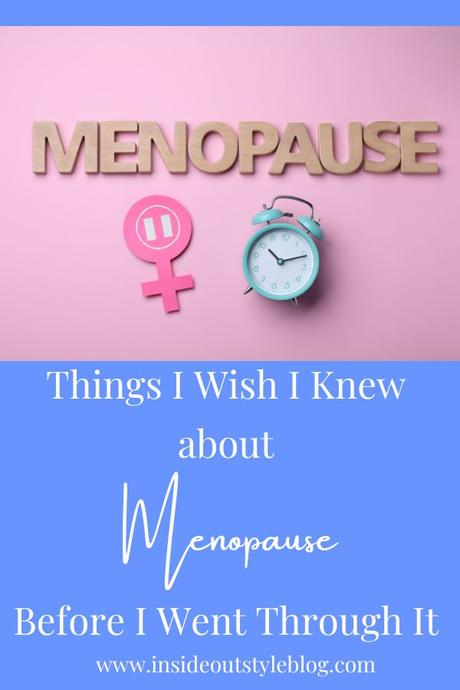



We’ve all heard about hot flushes as a common symptom of peri-menopause and menopause. But there is so much more to this change of life. According to my blood tests I’m post-menopausal now but my peri-menopause started around 10 year ago along with the night-sweats, and then came other symptoms…
Losing estrogen means:
- It’s harder to maintain muscle mass and it’s harder to gain muscle, so it now takes much longer to get stronger than it did prior.
- You lose flexibility so it’s harder to move and you wake up feeling sore.
- Joint pain is common as the decrease in estrogen levels can lead to inflammation in the joints.
- Lack of sleep quality and night sweats that wake you up
- You lose bone density which causes osteoporosis
- Chin hairs need daily maintenance
- Brain fog
- Dry skin
- Weight gain
- Urinary problems
- Low libido
and the list goes on and many of the symptoms don’t disappear the minute you’re officially through menopause (which I naively thought they would). Plus … wait, there’s more!
Strange symptoms that are related to perimenopause that you may not have realised were related:
- Itchy skin (my toes would itch every night when I went to bed, I kept checking for mosquito bites yet nothing was ever there)
- Racing heart
- Tinnitus
- Electric shock sensations
- Dizziness
- Anxiety
- Burning tongue
- Brittle nails
and this list can keep going on too!
Let’s Talk About Hormone Replacement Therapy
I haven’t had hot flushes in the day, but I do get night sweats and I’m sick of not sleeping, (along with a few others of the common and less common menopausal symptoms) so I went to see my GP to ask about HRT (hormone replacement therapy which I’d been scared off thinking about because of the early 2000s study that has now been debunked, what was used in the study was a different sort of HRT than is used now ummm… estrogen from pregnant horse urine was what was used. Now it’s estrogen from yams which is bioidentical to the estrogen your body used to make). Plus the participants were well past menopause before they started on HRT. And 18 years on from that original study that scared women from taking HRT and doctors from prescribing it, there has been a follow-up study that found that those women who did take HRT had no greater chance of dying than those who didn’t. Sadly my GP, like many, is pretty uninformed about current recommendations for menopause and stuck in her mind were the results of the old WHI study (sadly few GPs are really trained to know about treating menopause), she prescribed me the lowest dose of estrogen and said I should only take it for a short time. In fact, the authors of the follow-up study conclude: “Observational studies, which include primarily women who initiate hormone therapy in early menopause, have generally demonstrated lower mortality among women using hormone therapy compared with nonusers.” A pooled statistical analysis of thirty clinical trials found that women who began hormone therapy before age 60 had a 39% lower risk of death than women who didn’t take hormones.
After hearing Dr Louise Newson, an English menopause specialist talk on a podcast (you can listen to it here) about all the benefits of HRT, from reducing the risk of heart disease, dementia and osteoporosis (to name a few) along with being able to get a decent nights sleep, I decided to do some research and find a GP who is trained in all things menopause to make sure I was getting the best care and most up-to-date advice available as my GP, lovely as she is, just doesn’t have the training in menopause. Fortunately, I found one and we’ve been trialling different doses of various HRT medications to see what’s the best option for me.
Benefits of modern HRT for women when they start taking it before age 60 show reduced rates of diabetes, bowel and uterine cancer and a huge reduction in bone fractures which to me seems like something worth finding out more about.
&iv;&modestbranding;&rel;&autohide;&playsinline;&autoplay;
Now I still do a quick daily check on my chin hair (and I do have some tweezers in the car for this purpose too, as it’s always when I’m at the traffic lights I feel another little chin hair has appeared), but many other symptoms have lessened or disappeared. I notice in my yoga classes that I can now do way more moves than I had been able to do, and my flexibility is coming back (and when I mentioned this to my menopause GP she said “That’ll be the estrogen”), and my yoga teachers has commented on how much more flexible I am now compared to when I started her classes a year or so ago. PlusI don’t wake up with the same level of back pain as I used to, so things are looking up for me!
Menopause is something that is getting talked about more now, which is great, but I wish I’d understood that menopause comes before the actual menopause, that the peri-menopause – that decade before I hit the actual menopause was the time I could have started investigating potential treatments to mitigate its side effects and for the potential protective effects that replacing my diminishing hormones could have on my health and potential longevity.







